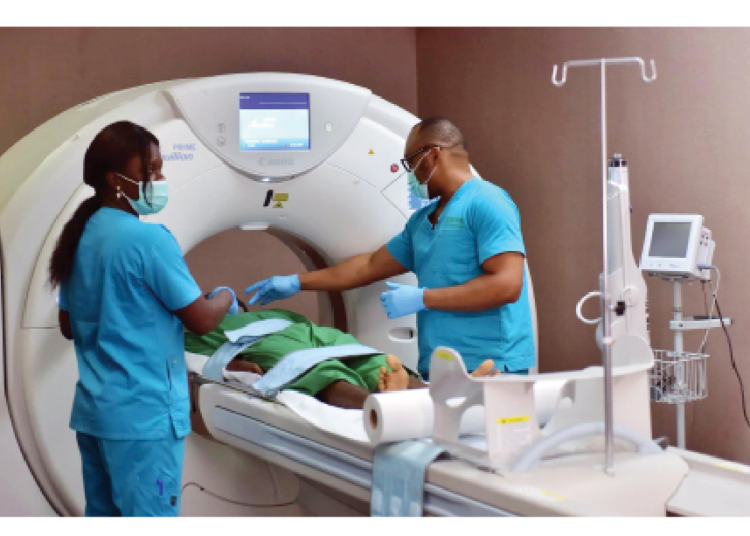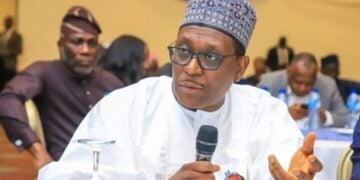For many Nigerians, a cancer diagnosis is more than a health challenge, it’s a test of survival in a system where the ability to live often depends on one’s income or location.
In a country where treatment can cost millions, and where radiotherapy machines are few and far between, the question of equity in cancer care is one that cannot be ignored.
Cancer is a relentless disease that spares no one. Globally, nearly 19 million new cases are recorded every year, with 10 million deaths. But in Nigeria, the numbers tell an even more sobering story: the World Health Organisation (WHO) estimates that 240 Nigerians die from cancer every day, about 10 every hour.
Behind these statistics are lives like Hauwa Umar’s, a breast cancer survivor whose story underscores the power of early detection. Hauwa’s life was saved after a free screening programme spotted her illness in time. “I was lucky, If not for that screening, I might not be alive today,” she said.
Such outcomes, however, remain rare in a country where access to diagnostics, radiotherapy, and chemotherapy depends largely on geography and affordability.
However, the federal government has restated its commitment to ensuring that every Nigerian, regardless of their status, tribe, or geography, can access timely and affordable cancer care.
The Minister of State for Health and Social Welfare, Dr. Iziaq Salako, who stated this at the 2025 International Cancer Week (ICW) in Abuja,
stated that “Cancer care in Nigeria must not depend on who you are or where you live.”
According to Dr. Salako, the federal government is currently reviewing expert recommendations from the WHO and Nigerian specialists to guide new policy reforms in cancer control.
One major priority is reforming the National Cancer Health Fund (CHF), created to support indigent patients but currently limited in reach. Salako noted that plans were underway to expand the fund’s impact and include more cancer centres nationwide, while seeking stronger collaboration with local and international partners to improve outcomes.
“We are reviewing the Cancer Health Fund to make it more inclusive and impactful. The Renewed Hope Agenda prioritises fairness and equity in health care, we must ensure that no one is left behind,” he said.
At the heart of this reform effort is the National Institute for Cancer Research and Treatment (NICRAT), established in 2017 to lead Nigeria’s cancer control strategy.
NICRAT’s Director-General, Prof. Usman Malami Aliyu, described the institute as a hub for innovation and partnership. In just two years, NICRAT has signed more than 20 Memoranda of Understanding (MoUs) with leading international institutions such as the Mayo Clinic, Johns Hopkins University, and Virginia Commonwealth University’s Massey Comprehensive Cancer Center.
These partnerships, he said, are helping to strengthen Nigeria’s cancer research ecosystem through training, mentorship, and technology exchange.
The institute recently launched two major initiatives: the Strengthening Institutional Capacity for Cancer Research and Implementation in Nigeria (SINCCAR) project and the Nigeria Cancer Genome Study (NCGS). The latter aims to analyse genetic mutations and cancer variants common among Nigerians, a critical step toward precision medicine tailored to African populations.
“These efforts will redefine how we detect and treat cancer in Nigeria. It’s about building sustainable systems that outlive individuals,” Prof. Aliyu said.
While attention often centres on adult cancers like breast, cervical, and prostate, childhood cancer is quietly on the rise. According to the President of the Nigeria Cancer Society, Dr. Abidemi Omonisi, about 40,000 Nigerian children are diagnosed with cancer each year.
“Many people still believe that children don’t get cancer. But data shows otherwise. Even newborns can develop cancer, particularly leukaemia,” he said.
At the University of Lagos Teaching Hospital (LUTH) alone, more than 300 paediatric cancer cases were recorded in a single year. Dr. Omonisi warned that childhood cancer deserves urgent government attention and inclusion in national cancer strategies.
“Cancer doesn’t respect the rich or the poor. We must act fast to give children a fighting chance,” he added.





